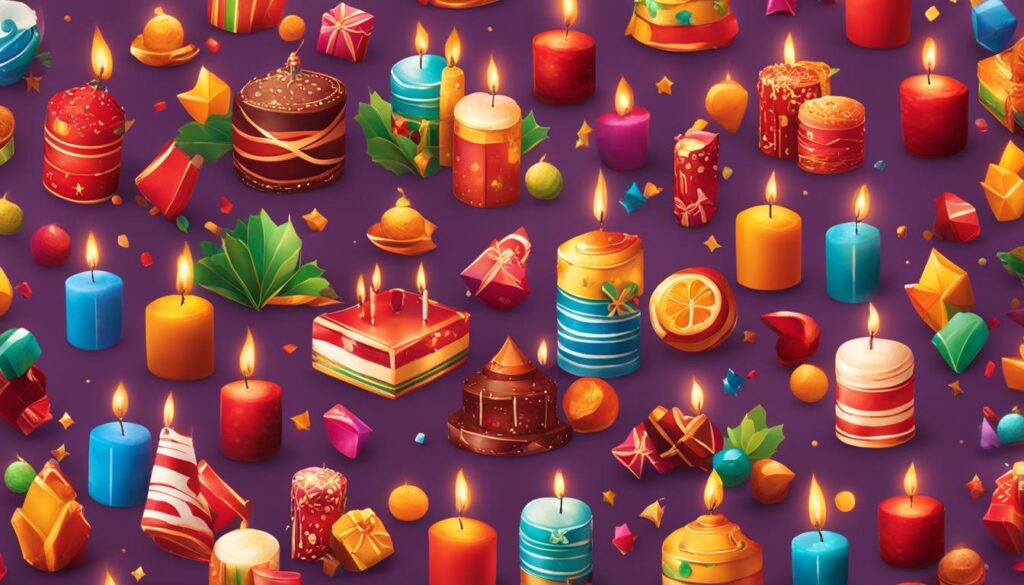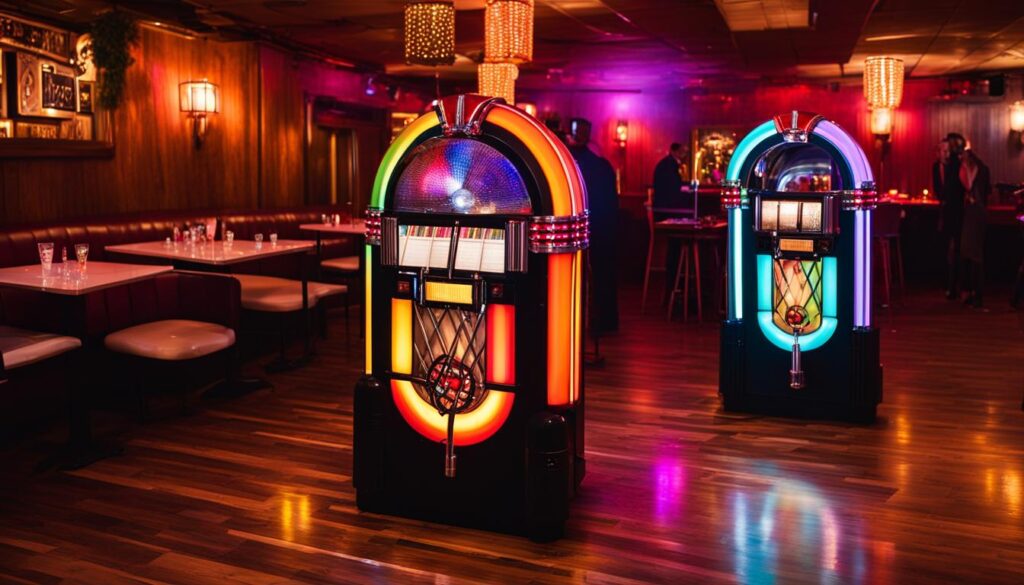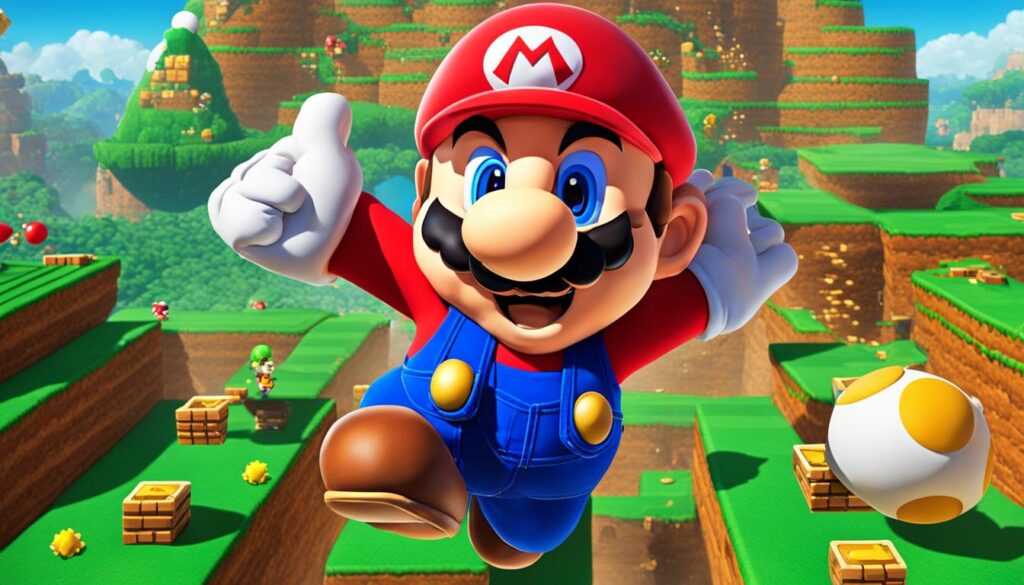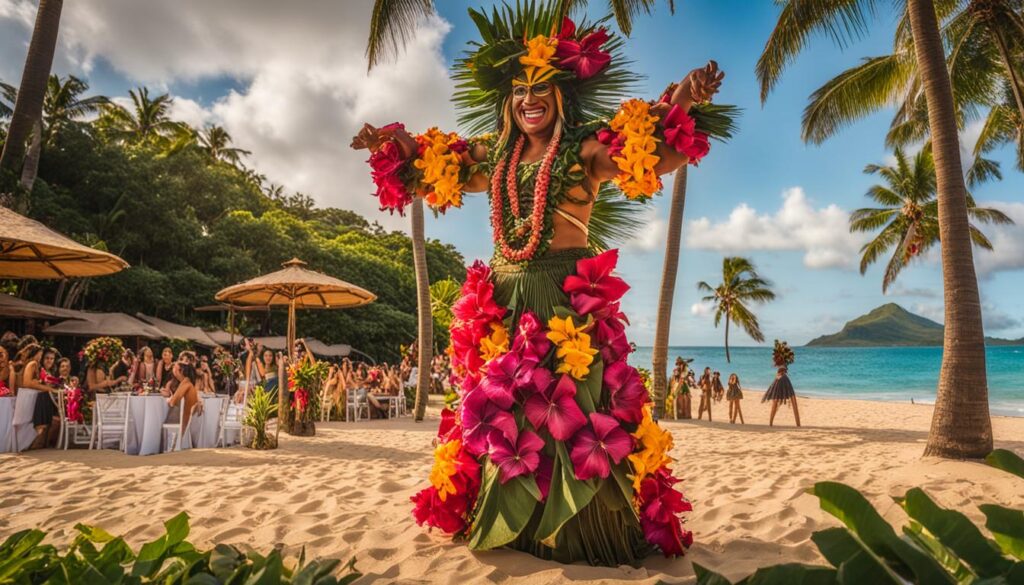We may earn money or products from the companies mentioned in this post.
Birthdays are significant celebrations that mark another year of life. The way people observe this occasion varies across the globe, reflecting unique cultural traditions and customs. In this section, we will take a deep dive into Cultural Birthday Traditions.
We will explore the diverse birthday traditions around the world, including the traditional birthday customs that different societies practice to celebrate age and life. From international birthday celebrations to the cultural variations in birthday festivities, we will highlight how different cultures mark this important day.
Join us as we discover the fascinating world of Cultural Birthday Traditions.
Key Takeaways
- Cultural Birthday Traditions vary across the world
- International birthday celebrations showcase the diversity of rituals and customs
- Traditional birthday customs highlight the significance of birthdays in different cultures
- Cultural variations in birthday festivities make each culture’s approach to birthdays unique
- Birthday traditions around the world are often associated with superstitions and beliefs
The Importance of Birthdays in Different Cultures
Birthdays are celebrated worldwide, but the ways in which they are celebrated differ across cultures. These cross-cultural birthday rituals, diverse birthday traditions, and global birthday practices highlight the significance of birthdays in different cultures.
The Significance of Birthdays in Different Cultures
In many cultures, birthdays are considered a milestone and are celebrated with great enthusiasm. For example, in some Latin American countries, a girl’s 15th birthday, known as Quinceañera, is celebrated with a big party, symbolizing her transition from childhood to adulthood.
Similarly, in Japan, a child’s fifth birthday, known as Shichi-Go-San, is celebrated to mark their growth and development. On this day, boys wear traditional kimonos, while girls wear elaborate dresses and visit their local shrine to pray for their future health and happiness.
Cross-Cultural Birthday Rituals
While some cultures celebrate birthdays with parties and gifts, others have unique birthday rituals.
| Culture | Birthday Ritual |
|---|---|
| China | A baby’s first birthday, known as Zhuazhou, involves placing several objects, such as books, a calculator, and a stethoscope, in front of the baby. The object they choose represents their future career. |
| South Africa | A child’s first birthday is celebrated with a special ceremony, where the child is given a name and welcomed into the community. |
| Mexico | A piñata, shaped like a seven-pointed star, is used as part of a birthday celebration, with each point representing one of the seven deadly sins. |
Diverse Birthday Traditions
Global birthday practices are incredibly diverse. For example, in Russia, it is common to celebrate a person’s “name day” instead of their birthday. This day is typically the feast day of the saint after whom the person is named.
In India, a person’s birthday is celebrated with a special dish called “halwa,” made from semolina, sugar, nuts, and dried fruit. On the other hand, in Vietnam, a person’s age is not always added on their birthday. Instead, everyone turns a year older on Tet, the Vietnamese New Year.
Global Birthday Practices
Whether it’s blowing out candles, receiving gifts, or indulging in birthday treats, people worldwide have their own way of celebrating their special day. In some countries, such as Germany, birthdays are celebrated with a cake that has as many candles as the person’s age. The birthday person must blow out all the candles in one breath for their wish to come true.
In Brazil, birthday traditions include a special meal, a cake, and the “Parabéns Pra Você” song. Additionally, the person celebrating their birthday wears a paper crown and has their face pushed into the cake.
These global birthday practices highlight the importance of birthdays in different cultures and the unique ways in which they are celebrated.
Traditional Birthday Customs Around the World
Birthdays are celebrated with great enthusiasm and fervor across the world. However, the traditional ways to celebrate birthdays differ from one culture to another, highlighting the cultural variations in birthday celebrations. Let’s have a look at some of the multicultural birthday festivities observed across the globe.
| Country | Traditional Birthday Customs |
|---|---|
| China |
|
| Mexico |
|
| Nigeria |
|
These traditional ways to celebrate birthdays showcase the rich diversity of cultures worldwide. It’s fascinating to see how different cultures have unique ways of commemorating someone’s special day, making it a memorable and culturally rich experience.
Birthday Superstitions and Beliefs Globally
Birthday traditions around the world are often associated with unique superstitions and beliefs. These beliefs and superstitions vary widely across cultures and reflect the diverse ways in which people view birthdays.
The Chinese Zodiac
In Chinese culture, birthdays are celebrated according to the Chinese zodiac. Each year is represented by an animal, and people born in that year are said to exhibit characteristics of that animal. For example, people born in the year of the rabbit are known to be gentle and compassionate. It is believed that wearing clothing or accessories with the image of one’s zodiac animal can bring good fortune and ward off evil spirits.
The Curse of the “Evil Eye”
Some cultures believe that birthday celebrations leave the celebrant vulnerable to the “evil eye.” The “evil eye” is said to be a curse caused by jealous or envious looks from others. To avoid this curse, people in some cultures will refrain from celebrating birthdays or keep their celebrations low-key.
Counting the Candles
In many Western cultures, it is customary to place birthday candles on a cake and make a wish before blowing them out. It is believed that if all the candles are blown out in one breath, the wish will come true. However, some cultures believe that counting the candles is bad luck. The number of candles on a birthday cake is said to represent the age of the celebrant and counting them can bring bad luck or signal an early death.
Giving Gifts in Odd Numbers
In many cultures, giving birthday gifts in odd numbers is considered good luck. Odd numbers are seen as lucky and auspicious, while even numbers are associated with bad luck. This tradition is particularly prevalent in Russia and other Slavic countries.
The Significance of 21st Birthdays
In the United States and many other countries, the 21st birthday is seen as a significant milestone. This is because it is the legal drinking age in many states and countries. Many people celebrate their 21st birthday with a night of drinking and partying.
“Birthdays are a time for reflection and celebration. Superstitions and beliefs surrounding birthday traditions highlight the diverse ways in which people view the passage of time and the significance of another year of life.”
Unique Birthday Traditions in Specific Cultures
Birthdays are celebrated in countless ways, and each culture has its unique customs and traditions. In this section, we will explore some of the most fascinating and exciting birthday celebrations around the world.
India
In India, the coming of age ritual for girls is called the “Kumari” ritual. It involves worshipping young girls who have not yet reached puberty, symbolizing the pure and divine qualities of the feminine energy. The girls are dressed up in traditional clothes, adorned with flowers and jewelry, and are worshipped as goddesses.
Mexico
“La Quinceañera” is a significant milestone for girls in Mexican culture, marking their 15th birthday and the transition from childhood to adulthood. The birthday girl wears a ball gown and a tiara, and a huge party is thrown in her honor, typically with lots of delicious Mexican food and traditional music.
Japan
In Japan, the celebration of a child’s first birthday is called “Tanjoubi.” The child is dressed up in traditional clothes and is offered a selection of items, each symbolizing a different future career path. Whichever item the child picks is believed to be an indication of their future.
China
In China, a baby’s first birthday is called “Zhuiqiujie.” The baby is showered with gifts and money in red envelopes, symbolizing good luck and prosperity. The highlight of the celebration is a special ceremony where the baby is presented with different objects, and the one they choose is believed to be an indication of their future.
Denmark
In Denmark, it’s customary to raise the national flag outside the house when it’s someone’s birthday. The birthday person is usually awakened with breakfast in bed and is presented with a special type of cake called “Kagemand,” which is shaped like a person and decorated with candy.
South Africa
In South Africa, celebrating birthdays is not complete without a dance called the “Gumboot dance.” It’s a traditional dance performed by men, where dancers wear rubber boots and use them to create a rhythmic beat, accompanied by songs.
Russia
In Russia, it’s customary to celebrate “Name Day” rather than a birthday. Name Day is celebrated on the day of the saint after whom the person was named. It’s a religious celebration, with families gathering to attend mass and enjoy traditional Russian food and drink.
Conclusion
In conclusion, Cultural Birthday Traditions are a fascinating and exciting way to explore the diverse and culturally rich world we live in. From cross-cultural birthday rituals to unique traditions that are specific to certain cultures, birthdays hold significant cultural and social importance in various parts of the world.
By examining the traditional birthday customs observed in different countries, we have discovered multicultural birthday festivities, traditional ways to celebrate birthdays, and cultural variations in birthday celebrations that showcase the diversity of rituals and traditions.
The Significance of Birthdays in Different Cultures
Through this exploration, we have learned about the global birthday practices that highlight the significance of birthdays in different cultures. Birthdays are often associated with superstitions and beliefs that vary across cultures, and we have uncovered some of the birthday superstitions and beliefs practiced globally.
The Rich Tapestry of Human Celebrations and Customs
As a result of our journey, we can appreciate the shared joy and celebration that comes with marking another year of life. Cultural Birthday Traditions provide a window into the rich tapestry of human celebrations and customs across the world, showcasing the importance of birthdays and how they are viewed and celebrated in different parts of the world.
Exploring Cultural Birthday Traditions From Around the World has been an enlightening and enriching experience. It is a reminder of the unique beauty and richness of different cultures and how they celebrate and honor life in their way.
FAQ
What are Cultural Birthday Traditions?
Cultural Birthday Traditions refer to the diverse ways in which different societies celebrate birthdays. These traditions encompass a wide range of rituals, customs, and practices that highlight the cultural significance attached to birthdays in various parts of the world.
Why are birthdays important in different cultures?
Birthdays hold significant cultural and social importance in different cultures. They are often seen as a milestone in a person’s life and are celebrated to honor and acknowledge the individual’s existence. Birthdays also provide an opportunity for family and friends to come together and express love, appreciation, and well wishes for the person celebrating their birthday.
What are some traditional birthday customs around the world?
Traditional birthday customs vary greatly across different countries and cultures. For example, in Mexico, a traditional birthday celebration called “Quinceañera” marks a girl’s 15th birthday, symbolizing her transition from childhood to womanhood. In India, birthdays are often celebrated with religious ceremonies and the sharing of sweets. These are just a few examples of the diverse and fascinating traditional birthday customs observed globally.
Are there any superstitions or beliefs associated with birthdays worldwide?
Yes, birthdays are often accompanied by various superstitions and beliefs. For instance, in many cultures, it is considered bad luck to reveal one’s age or to celebrate a birthday before the actual date. Some cultures believe that blowing out candles on a birthday cake grants a wish. These superstitions and beliefs vary across different societies, adding an intriguing aspect to birthday celebrations.
What are some unique birthday traditions in specific cultures?
Different cultures have their own unique birthday traditions that make them stand out. For example, in Russia, it is customary to receive congratulations and presents not only from friends and family but also from acquaintances and colleagues. In Jamaica, it is traditional for the birthday person to be “wetted” with water, symbolizing blessings and good luck. These unique traditions showcase the diversity and richness of birthday celebrations worldwide.
How do Cultural Birthday Traditions contribute to our understanding of global celebrations?
Cultural Birthday Traditions provide valuable insights into the diverse ways in which societies across the world celebrate life and mark milestones. By exploring these traditions, we gain a deeper understanding of the cultural values, beliefs, and customs that shape global celebrations. It allows us to appreciate the shared joy and celebration that comes with birthdays while respecting and honoring the unique traditions of each culture.
Affiliate Disclosure: This post may contain affiliate links. If you purchase through our link, we may receive a small commission, but at no additional cost to you. For more information, please see our Disclosure statement.



